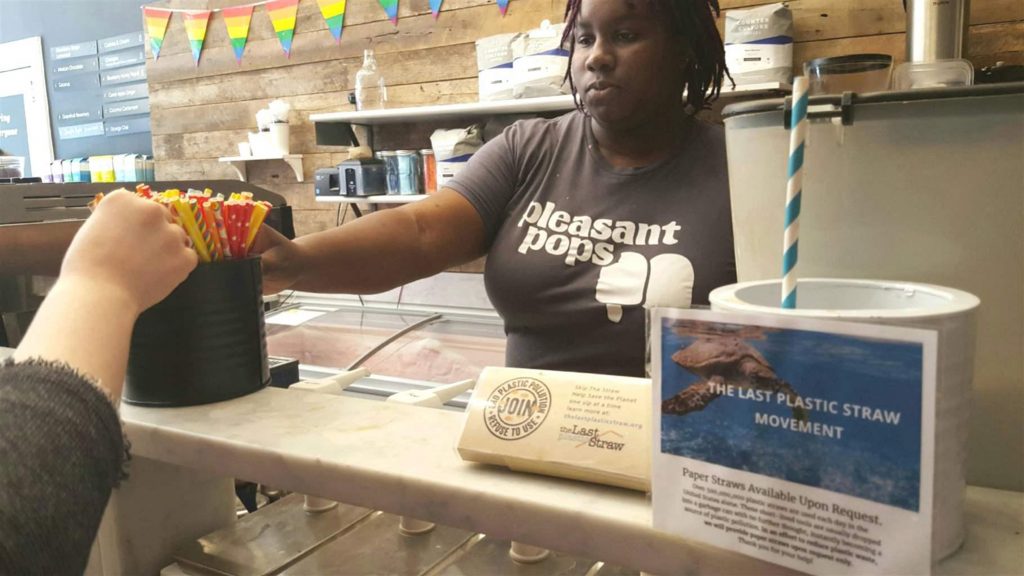At the beginning of this month, Seattle became the first major U.S. city to ban restaurants from giving customers non-recyclable plastic straws. Other cities in California, Florida, and New Jersey have also restricted their use. And companies such as Bon Appétit Management and Alaska Airlines recently committed to an eventual ban.
The movement to ban plastic straws began in 2015 after a viral video depicted a sea turtle with a straw stuck in its nose. Recent trending hashtags such as #StopSucking have revitalized the anti-straw campaign, with public figures such as Chelsea Clinton and Russell Crowe decrying their use.
Straws make up a small fraction of the 8 million tons of plastic waste that pollute waters yearly. The effort to ban plastic straws has gained popularity because they seem like a utensil we can easily do without.
“My waiter asked ‘Now, do we want straws OR do we want to save the turtles?’ and honestly we all deserve that environmental guilt trip,” a recent tweet with more than 200,000 likes said.
My waiter asked “Now, do we want straws OR do we want to save the turtles?” and honestly we all deserve that environmental guilt trip
— Rebekah White (@beksjwhite) June 26, 2018
But plastic straws aren’t merely optional for everyone. Flexible, single-use plastic straws make it possible for many people with disabilities to drink. They may not have enough strength or coordination to pick up a cup, or their mouths may not be able to sip properly.
RELATED: Farmers’ Market frowns on plastic
And while straws in other materials exist, they are often not viable options. Few straw alternatives are as flexible or positionable as plastic ones. Paper straws disintegrate. Glass or metal straws pose a risk for injury. Pasta straws are a choking hazard. Porous silicone straws require meticulous cleaning, and they’re expensive (nearly 27 percent of people with disabilities were living in poverty in 2016, according to census data).
One may argue that people with disabilities should just bring plastic straws with them to restaurants. But it’s unfair to make people with disabilities pay for extra straws when restaurants usually provide them for free.
Furthermore, the well-intentioned campaign against plastic straws has relied on pseudoscience. Activists and major news outlets such as CNN and The Washington Post tout the shocking claim that Americans use 500 million plastic straws per day. But the source of this statistic is a survey by an eco-conscious 9-year-old.
While images of plastic straws ensnaring ocean wildlife are disturbing, the straws aren’t the main culprit when it comes to non-biodegradable waste. The California Coastal Commission reports that straws and stirrers made up just 3.98 percent of debris collected during its annual Coastal Cleanup Days from 1989 to 2014.
RELATED: UISG seeks to ditch plastic
The threat that plastic waste poses to our planet is real. By 2050, there will be more plastic in oceans than fish, a World Economic Forum report estimates. Small changes, such as giving up plastic straws, certainly have some impact. But we do our planet and people among us a disservice when we become militant in policing the individual consumer.










